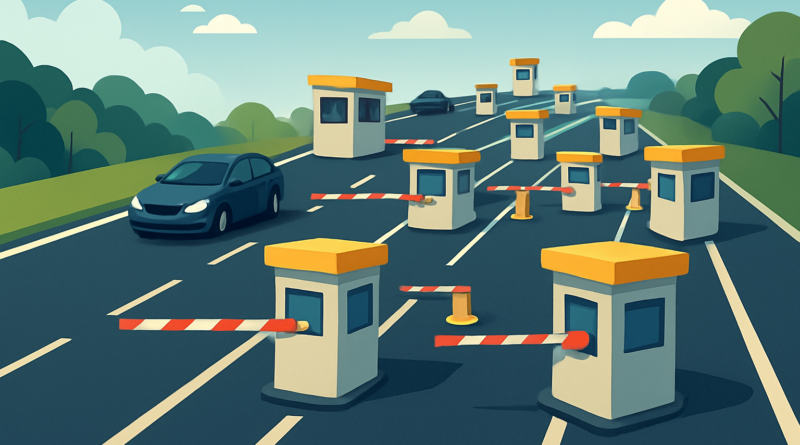The Extraction Economy: Why Everything Costs More Than It Should
Most people think the economy is about making and trading value. You create something useful, you sell it, and you get rewarded. Simple.
But more and more, that’s not what’s happening. Instead, we’ve entered what I call the extraction economy: a system built not on creating value, but on taking it out of you.
Instead of innovation, we get hidden fees. Instead of service, we get subscriptions. Instead of simplicity, we get systems designed to confuse us. Because confusion is profitable.
This isn’t about luxury goods or indulgent spending. This is about how the everyday basics of modern life, from healthcare to banking to your monthly phone bill, are being engineered to siphon money and attention.
What Is the Extraction Economy?
The extraction economy thrives wherever artificial friction is created. Companies design hoops for you to jump through, then charge you for the privilege of getting through them.
Think about how banks rake in billions from overdraft fees, not because it costs them $35 to process an overdraft, but because you slipped up against a rule designed to catch you. Or how healthcare billing has become an endless maze of codes, claims, and denials, generating revenue by exhausting patients into compliance. Even streaming, which once felt liberating, now forces you to juggle half a dozen subscriptions for what cable used to deliver in one. And airlines? They’ve mastered the art of turning basic human needs: a seat, a bag, legroom into à la carte upsells.
It’s not about adding value. It’s about inventing tollbooths in places where the road should be free.
How It Differs From Other Frames
It’s tempting to say, “Isn’t this just rent-seeking?” or “Isn’t this just surveillance capitalism?” Close, but not quite.
Rent-seeking is about collecting value others already created (like a landlord hiking rent). Surveillance capitalism is about monetizing your data and attention.
The extraction economy is broader and sharper. It’s about manufacturing dependence and friction, then cashing in on the hassle. It’s not just taking a cut. It’s creating inefficiency itself and selling you the way out. That’s why it feels like you’re constantly bleeding small amounts of money without knowing exactly why. It’s death by a thousand cuts. Not because the product costs more, but because the system is engineered to strip more out of you.
Friction Farming
Extraction isn’t random. It’s cultivated. Companies design systems that deliberately slow you down, confuse you, or force you into dead ends. Not to fix the problem, but to make quitting harder than paying.
That’s friction farming: the intentional creation of obstacles because every extra hoop means more revenue. Airlines bury you in add-on screens before you can check out. Healthcare insurers design phone trees that make you give up before filing a claim. Tech companies make canceling subscriptions harder than signing up.
The frustration isn’t a bug. It’s the business model.
The Death of Customer Service
Once upon a time, “service” meant solving your problem. Now, customer service has been hollowed out into scripted apologies and automated bots. Why? Because solving problems doesn’t extract value, stalling you does.
Every delay, every transfer, every “please hold” keeps you in the maze long enough to push you toward the path of least resistance: giving up or paying extra. What used to be a human-centered part of business has been retooled into another tollbooth. The slow death of customer service is one of the clearest symptoms of the extraction economy.
Everyday Extraction
The signs are everywhere once you start looking. Insurance premiums rise even when you’ve never filed a claim. College tuition balloons under the weight of administrative bloat and bundled fees. Games deliberately frustrate you until you pay to skip the wait. Companies charge “convenience fees” for paying online. A method that is actually more convenient for them.
All of it dressed up in the language of innovation, choice, and personalization. But none of it is designed to serve you. It’s designed to trap you.
Why It Matters
An economy built on extraction strips faster than it builds. Over time, the result is predictable. Trust erodes, because customers stop believing companies have their interests at heart. Attention collapses, because people stop reading, watching, or even trying to understand, since every interaction feels like a scam. And value itself shrinks, as genuine innovation takes a backseat to cleverer ways of charging fees.
In the short term, companies win. In the long term, everyone loses.
How to Defend Yourself
You can’t avoid extraction entirely. It’s baked into the system. But you can get smarter at spotting and dodging it. The first rule is to assume friction is intentional. If a process feels confusing, there’s probably profit in your confusion.
Count the “forever costs” before you commit; a $9 monthly subscription seems small until you multiply it across years. Whenever possible, prefer ownership over access, since subscriptions extract while assets hold. And although it’s tedious, reading the fine print once can save you years of fees you never agreed to in spirit.
Most importantly, name the game. Simply calling it what it is, extraction, can break the spell.
The Hidden Tollbooth Economy
Here’s the catchphrase version: we’re living in a hidden tollbooth economy. Everywhere you turn, there’s another gatekeeper charging you for access. And the most profitable tollbooths are the ones you don’t notice until you’ve already walked through them.
The point of naming the extraction economy is simple: once you can see it, you can start resisting it. Because the real economy, the one worth preserving, is still about building, trading, and creating value. The extraction economy is just the parasite. And the first step in fighting a parasite is giving it a name.
Further Resources:

